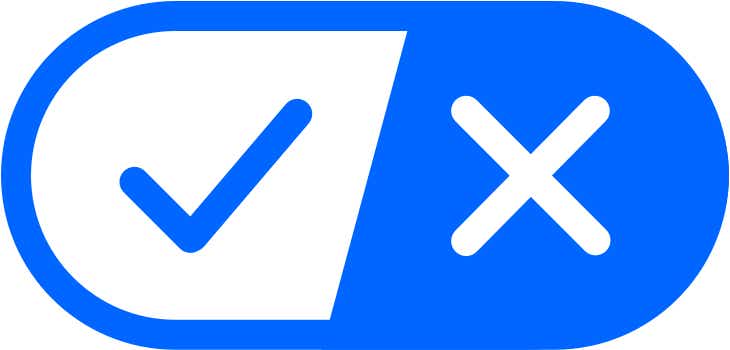Futures: A Brief History and Overview

Futures: A Brief History and Overview
While advances in futures trading have accelerated in the 21st century, this niche of the financial industry has a long, diverse history. A history that is, of course, tied closely with humanity's own beginnings.
Agriculture, or the cultivation of soil for growing crops, is arguably one of the most important scientific advances in the history of human civilization.
When farmers started to feed an exponential number of people beyond their own family, a path was opened for other members of the community to specialize in something other than sourcing sustenance.
Given the great importance of farming in humanity's history, it shouldn't come as much of a surprise that the first futures products were tied to agricultural products.
It's estimated that crops were first cultivated around 10,000 BC, which means it took roughly 11,700 years for someone to think up futures.
The first ever futures exchange is believed to have developed in Osaka, Japan around 1697. Known as the Dojima Rice Exchange, this trading hub was necessitated because Samurai at this time were paid in rice.
Because weather and other factors frequently caused volatility in the price of rice, many Samurai sought to lock in their wages by trading their future income for a known amount of hard currency. Thus, futures were born.
For comparison purposes, it's worth noting that the origins of modern stock markets are attributed to activity in Europe roughly 100 years prior to the rise of the Dojima Rice Exchange. The Dutch East India issued the first joint-stock shares that were offered to the public and traded on an exchange. This occurred in 1602 at the Amsterdam Stock Exchange.
Referring back to the futures, early activity related to this product is also attributed to developments in London. Officially, the London Metal Market and Exchange Market didn't open until 1877, with specialization in base metals. However, futures-related trading was conducted in the coffee shops of London well before 1877.
In the Western Hemisphere, the Chicago Board of Trade (CBOT) was founded in 1851, and focused initially on corn futures. The CBOT is also notable because it originated what is now referred to as a "standardized, exchange-traded" futures contract, which debuted in 1864.
What is now called The Chicago Mercantile Exchange (CME) was first established as the Chicago Produce Exchange in 1874. The CME was the first futures exchange to offer contracts in foreign currencies. This division of the CME was called the International Monetary Market (IMM), and was founded in 1972.
The founding of the IMM soon kicked off the development and trading of other "financial futures," such as interest rates. Financial futures, as this group of products is often called, were made available at the CME, and later at the New York Mercantile Exchange (NYMEX) in the 1970s.
During and after the Financial Crisis of 2007-2008, and in lock-step with China's emergence in Asia, many futures exchanges have either partnered or merged with regional partners.
Today, the largest futures exchanges in the world include:
CME Group - USA
National Exchange - India
Intercontinental Exchange (ICE) - USA
Moscow Exchange - Russia
EUREX - Germany
Shanghai Futures Exchange - China
Nasdaq - USA
Dalian Commodities Exchange - China
Bovespa - Brazil
CBOE Holdings - USA
Zhengzhou Commodity Exchange - China
Korea Exchange - South Korea
Bombay Exchange - India
Futures are commonly grouped into six categories: agricultural futures, metals futures, energy futures, equity index futures, foreign currency futures, and interest rate futures.
Some of the individual futures products with the highest average daily volume include:
E-Mini S&P 500 (equity index future)
Eurodollars (interest rate future)
10-year Treasury Note (interest rate future)
5-year Treasury Note (interest rate future)
2-year Treasury Note (interest rate future)
Crude Oil (energy future)
E-Mini Nasdaq 100 (equity index future)
Corn (agricultural future)
Gold (metal future)
Natural Gas (energy future)
Soybeans (agricultural future)
Euro (FX future)
Japanese Yen (FX future)
Treasury Bond (interest rate future)
If you are currently evaluating whether futures fit for your own portfolio, a recent episode of Closing the Gap: Futures Edition presents many of the advantages and disadvantages associated with trading the product. We encourage you to watch the complete episode when your schedule allows.
If you have any questions about futures, or the history of the product, we also encourage you to reach out directly at support@tastylive.com.
We look forward to hearing from you!
Sage Anderson has an extensive background trading equity derivatives and managing volatility-based portfolios. He has traded hundreds of thousands of contracts across the spectrum of industries in the single-stock universe.
Options involve risk and are not suitable for all investors. Please read Characteristics and Risks of Standardized Options before deciding to invest in options.
tastylive content is created, produced, and provided solely by tastylive, Inc. (“tastylive”) and is for informational and educational purposes only. It is not, nor is it intended to be, trading or investment advice or a recommendation that any security, futures contract, digital asset, other product, transaction, or investment strategy is suitable for any person. Trading securities, futures products, and digital assets involve risk and may result in a loss greater than the original amount invested. tastylive, through its content, financial programming or otherwise, does not provide investment or financial advice or make investment recommendations. Investment information provided may not be appropriate for all investors and is provided without respect to individual investor financial sophistication, financial situation, investing time horizon or risk tolerance. tastylive is not in the business of transacting securities trades, nor does it direct client commodity accounts or give commodity trading advice tailored to any particular client’s situation or investment objectives. Supporting documentation for any claims (including claims made on behalf of options programs), comparisons, statistics, or other technical data, if applicable, will be supplied upon request. tastylive is not a licensed financial adviser, registered investment adviser, or a registered broker-dealer. Options, futures, and futures options are not suitable for all investors. Prior to trading securities, options, futures, or futures options, please read the applicable risk disclosures, including, but not limited to, the Characteristics and Risks of Standardized Options Disclosure and the Futures and Exchange-Traded Options Risk Disclosure found on tastytrade.com/disclosures.
tastytrade, Inc. ("tastytrade”) is a registered broker-dealer and member of FINRA, NFA, and SIPC. tastytrade was previously known as tastyworks, Inc. (“tastyworks”). tastytrade offers self-directed brokerage accounts to its customers. tastytrade does not give financial or trading advice, nor does it make investment recommendations. You alone are responsible for making your investment and trading decisions and for evaluating the merits and risks associated with the use of tastytrade’s systems, services or products. tastytrade is a wholly-owned subsidiary of tastylive, Inc.
tastytrade has entered into a Marketing Agreement with tastylive (“Marketing Agent”) whereby tastytrade pays compensation to Marketing Agent to recommend tastytrade’s brokerage services. The existence of this Marketing Agreement should not be deemed as an endorsement or recommendation of Marketing Agent by tastytrade. tastytrade and Marketing Agent are separate entities with their own products and services. tastylive is the parent company of tastytrade.
tastyfx, LLC (“tastyfx”) is a Commodity Futures Trading Commission (“CFTC”) registered Retail Foreign Exchange Dealer (RFED) and Introducing Broker (IB) and Forex Dealer Member (FDM) of the National Futures Association (“NFA”) (NFA ID 0509630). Leveraged trading in foreign currency or off-exchange products on margin carries significant risk and may not be suitable for all investors. We advise you to carefully consider whether trading is appropriate for you based on your personal circumstances as you may lose more than you invest.
tastycrypto is provided solely by tasty Software Solutions, LLC. tasty Software Solutions, LLC is a separate but affiliate company of tastylive, Inc. Neither tastylive nor any of its affiliates are responsible for the products or services provided by tasty Software Solutions, LLC. Cryptocurrency trading is not suitable for all investors due to the number of risks involved. The value of any cryptocurrency, including digital assets pegged to fiat currency, commodities, or any other asset, may go to zero.
© copyright 2013 - 2026 tastylive, Inc. All Rights Reserved. Applicable portions of the Terms of Use on tastylive.com apply. Reproduction, adaptation, distribution, public display, exhibition for profit, or storage in any electronic storage media in whole or in part is prohibited under penalty of law, provided that you may download tastylive’s podcasts as necessary to view for personal use. tastylive was previously known as tastytrade, Inc. tastylive is a trademark/servicemark owned by tastylive, Inc.
Your privacy choices